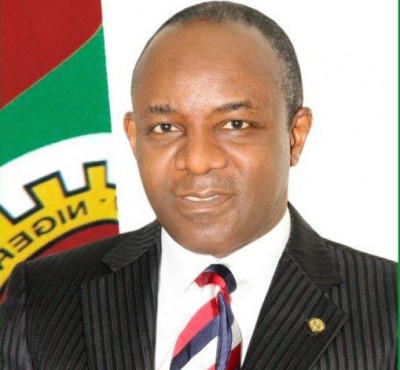The Minister of Petroleum Resources, Dr Ibe Kachikwu, has decried the high cost of oil production at 32 dollars per barrel, saying it makes cost of Foreign Direct Investment (FDI) very expensive.
Kachikwu made the assertion at the 2017 Annual Conference of the National Association of Energy Correspondents (NAEC), in Lagos.
The minister said that the Federal Government was making frantic efforts to bring down the cost to 15 dollars per barrel in order to significantly bring down cost of FDI.
“In Nigeria today, the situation is such that FDI flows into the country are at high cost.
“An example is the high cost of production of oil at about 32 dollars per barrel.
“Initiative to reduce the cost of crude oil production to 15 dollars per barrel is ongoing.
“Initial consultations have been held with stakeholders and cost drivers have been identified.
“The outcome of this initiative will be a win-win for investors and the nation,” Kachikwu said.
He said that the Petroleum Industry Governance Bill (PIGB) had been structured to fully turn around the petroleum sector and make it attractive to investors.
Kachikwu also said that the security issues and funding gap in the area of refinery had delayed the take off of refinery projects, even after licences have been issued.
He regretted that after the Department of Petroleum Resources (DPR) had issued about 40 licences, only two projects were currently being developed.
The minister expressed optimism that the PIGB would bring about flexible fiscal regime, promote gas utilisation and enhance local content and as well restructure NNPC for enhanced productivity.
Also, the NNPC Group Managing Director, Maikanti Baru, said that the bill largely reflects the aspirations of the industry for the emplacement of effective policy, commercial and regulatory framework that promotes growth and efficient operations.
Baru said that other issues in the bill need to be addressed immediately before it was finally sent to the president for assent.
He urged stakeholders to take advantage of the opportunity to seek clarity and make possible changes to ensure that the bill accomplishes the main purpose of reforming the industry for the collective good.
The Senate had on May 25 2017 the Bill.
It seeks to establish a framework for the creation of commercially-oriented and profit-driven petroleum entities, to ensure value addition and internationalisation of the petroleum industry.
This will be done through the creation of efficient and effective governing institutions with clear and separate roles for the petroleum industry. (NAN)
ROR/YO/GOK

